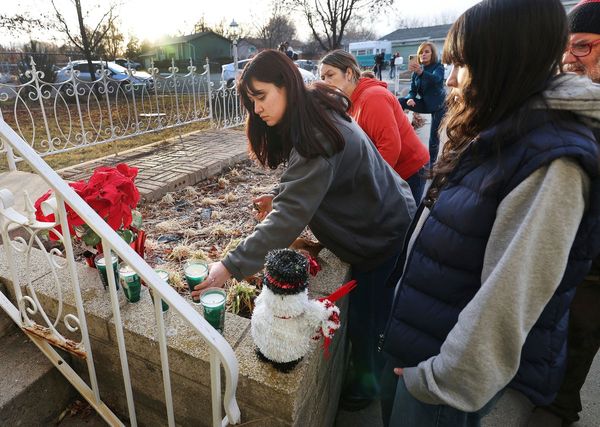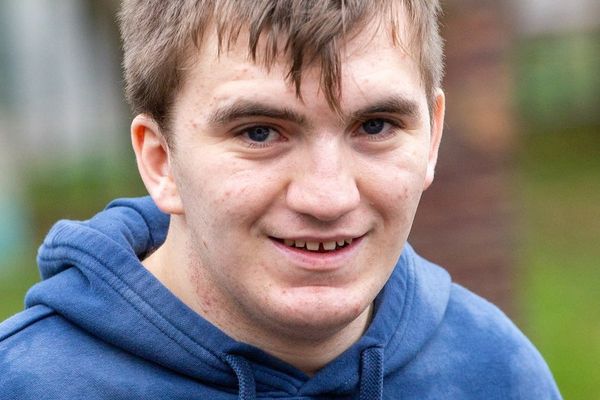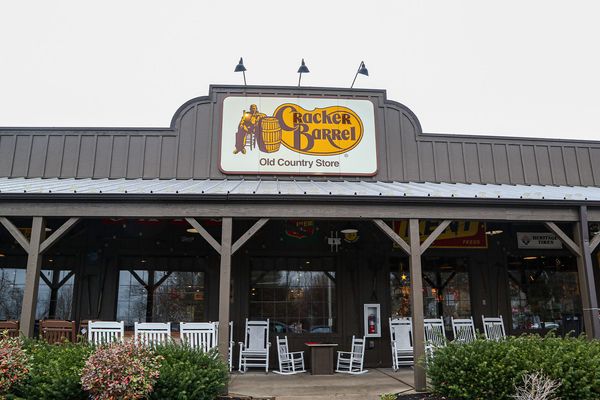The world produces enough food to feed everyone, and yet 821 million people – one in nine worldwide – suffer from hunger and malnutrition, according to United Nations statistics, released last year.
One-third of all the food produced is never consumed, and yet 3.1 million children under five die of hunger every year. That’s equivalent to one death every 10 seconds.
The biggest cause of hunger worldwide is poverty, and despite billions of dollars in humanitarian aid and the effort of thousands of government organisations, food banks, NGOs and charities, distribution channels for subsidised and free food fall short of demand.
Trying to bridge that gap is the Robin Hood Army, a global, volunteer-based organisation originating from India.
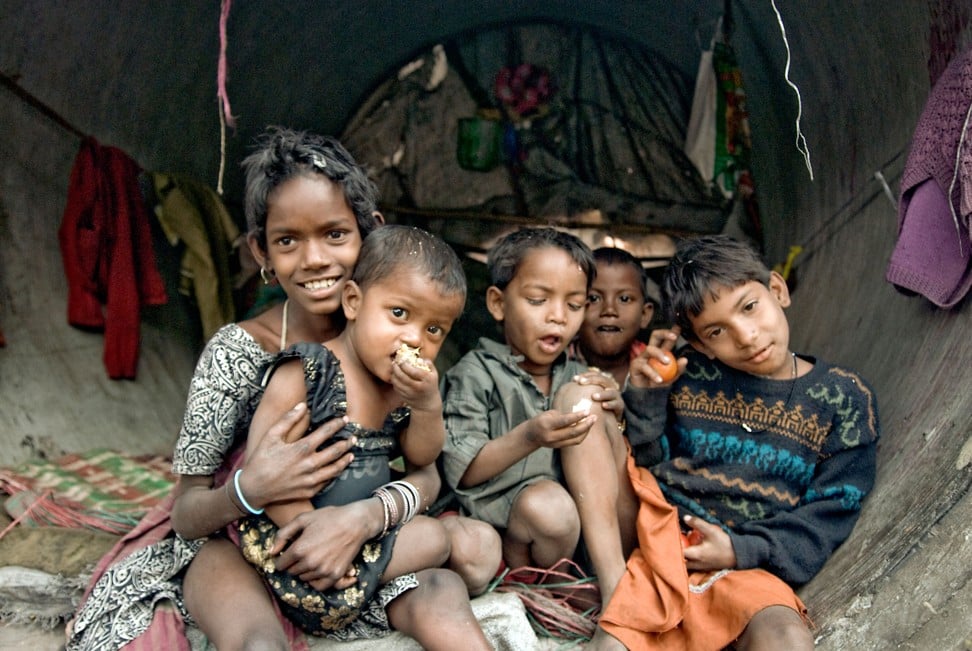
“Our vision is to beat global hunger and bring out the best of humanity using food as a medium,” says Neel Ghose, 29, who co-founded the charity. He started the Robin Hood Army in 2014 with friend Anand Sinha, and was joined a month later by Aarushi Batra – another friend.
Ghose was working in Portugal when he came across ReFood, an organisation that collects leftover food from restaurants and distributes it to the hungry.
“I was enamoured by how simple the idea was and spent some time with the founder, Hunter Hadler, and his team to understand the operations. I decided to replicate the model in India, where hunger is a far more rampant problem,” he says.
When he returned to India, Ghose contacted Sinha to discuss whether the idea would work. They came to the conclusion that the only way to learn was to hit the ground running, says Ghose, a graduate of Harvard Business School.
“On our first night of distribution, six of us served food to 150 hungry people in a New Delhi neighbourhood,” he says.
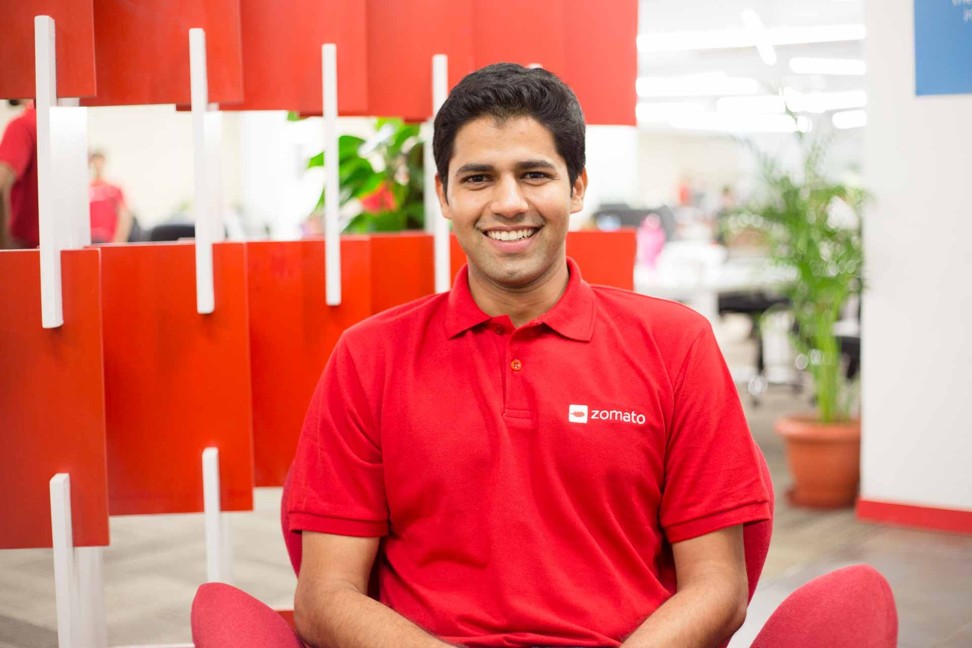
However, they were aware that distributing food once a week was a drop in the ocean in a country with 200 million hungry people, of whom 7,000 die every day. “Hunger kills more people each year than Aids, malaria and terrorism combined,” says Ghose.
Things began to change after they created a Robin Hood Army Facebook page and shared moments from their first food distribution drive.
“Seeing the images on social media, many of our friends got in touch saying they wanted to help,” says Sinha, 31. “That left us with a choice: to wait until we got Delhi working like clockwork or to share our best practises and guide others into starting chapters in their cities. I am glad we chose the second option.”
Over the past five years, the charity has built a band of more than 36,000 passionate volunteers – students, young professionals, entrepreneurs and homemakers – called Robins. They scout restaurants, persuade them to donate surplus food, and identify benefactors such as the homeless, orphanages and elderly care homes.
Since its inception, the merry band of men and women, who dress in emerald green like the legendary heroic outlaw from whom they take their name, have served 15 million meals to 9.5 million people in 113 cities across 10 countries.
The Robin Hood Army is now present in more than 55 Indian cities and has expanded globally, with the Pakistan chapter starting in 2015, followed by Jakarta, Manila, Bangkok and Colombo. It has also reached South America (Brazil, Chile) and Africa (Botswana, Kenya and Uganda).
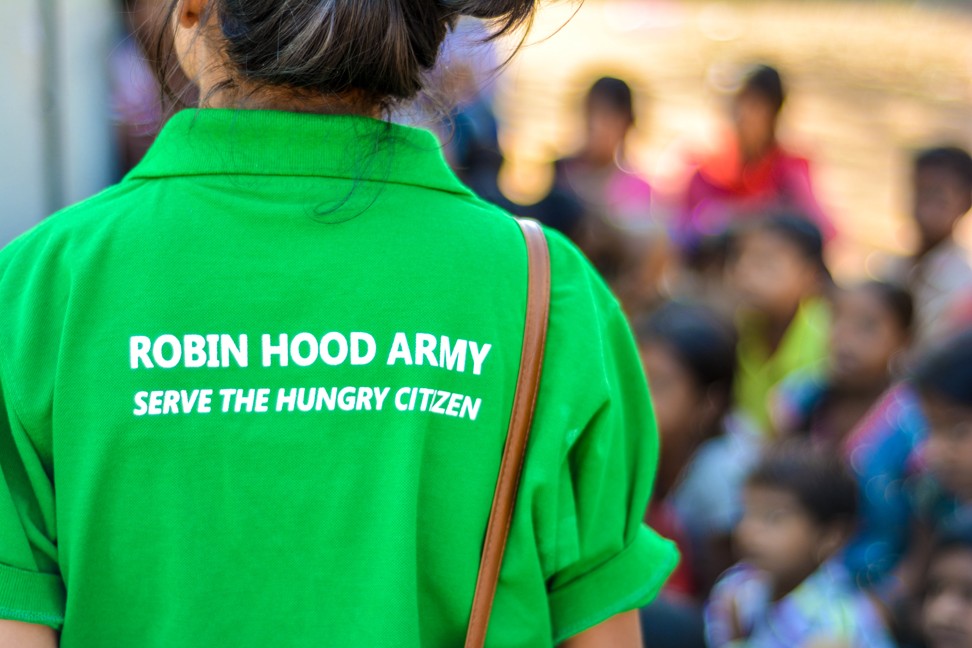
“I heard about the work that Neel [Ghose] was doing and contacted him. We started in a small way last year,” Bachu Patel, 69, a businessman who started the branch in Botswana. “Today, with the help of 57 Robins, and a few food chains, we serve an average of 700 meals every week to the underprivileged.”
The Robin Hood Army uses social media extensively to engage new volunteers, link up with restaurants and spread awareness about their activities.
“Sharing our moments of serving on social media has helped us win the trust [of the community] and convince hundreds of restaurants to partner with us to provide meals,” says 28-year Batra, who heads the Indian operations and manages their social media presence. “Similarly, a bunch of TEDx talks by different Robins have inspired people across [the world] to join the Robin family. Currently we have 7,500 to 8,000 Robins signing up every month through social media.”
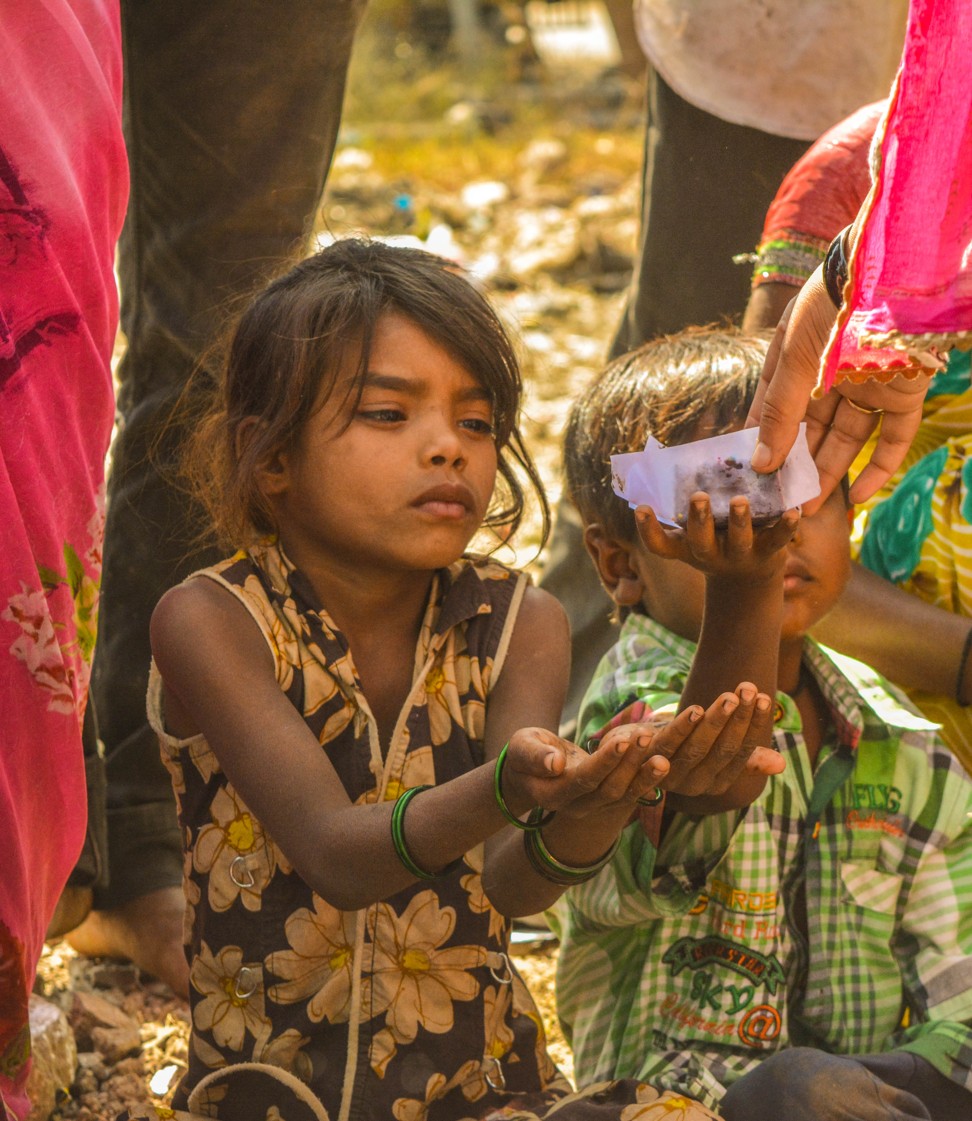
A decentralised, or “hyperlocal neighbourhood” model, has contributed to Robin Hood Army’s success,” Ghose says. In a big city like Mumbai, for example, there are a number of chapters. Each is effectively self-managed and stays connected through a WhatsApp group to the overall Robin Hood Army network.
All expenses, such as transport costs, are borne by the volunteers, Batra says.
“Many Robins use their own cars for collecting and distributing food. Robin Hood Army is a zero-funds organisation. They do not accept monetary contributions and have no revenue, employees or office space,” he adds.
If anyone wants to donate, they can buy blankets, clothes, school bags, and help to distribute them instead, Ghose says.
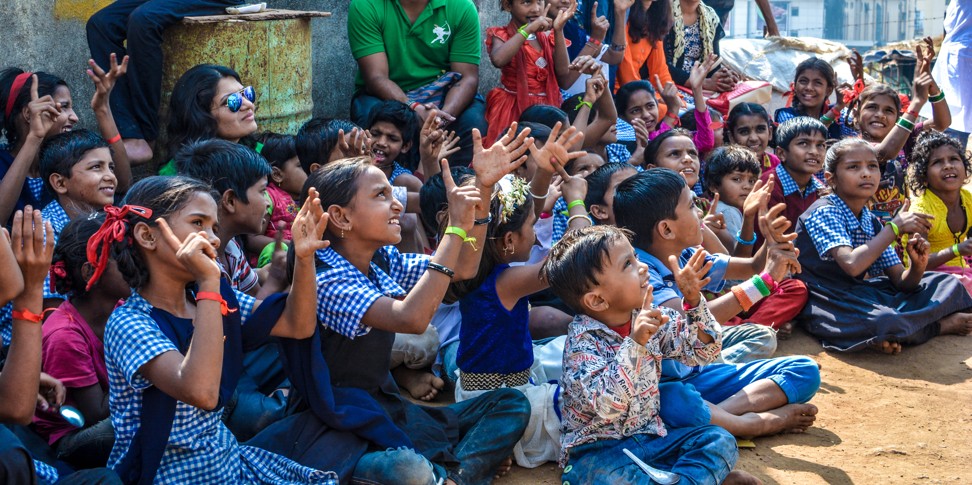
“The reason for the success of the [Robin Hood Army] is each and every Robin,” he says. “We are extremely lucky to have found passionate citizens who have a deep commitment towards building a better society. Each Robin commits to three hours per week.”
Dipti Tulpule, a 42 year-old homemaker from the Indian city of Pune, says she is proud to be a Robin.
“You get immense satisfaction from spreading happiness. People are happy not just because you serve them food or give them clothes. They are happy because they see that someone cares for them. My whole family is a Robin family,” she says.
Robin Hood Army’s restaurant partners have been staunch allies and many now provide freshly cooked food instead of just donating their leftover food. The group has partnered with more than 250 restaurants in Delhi alone.
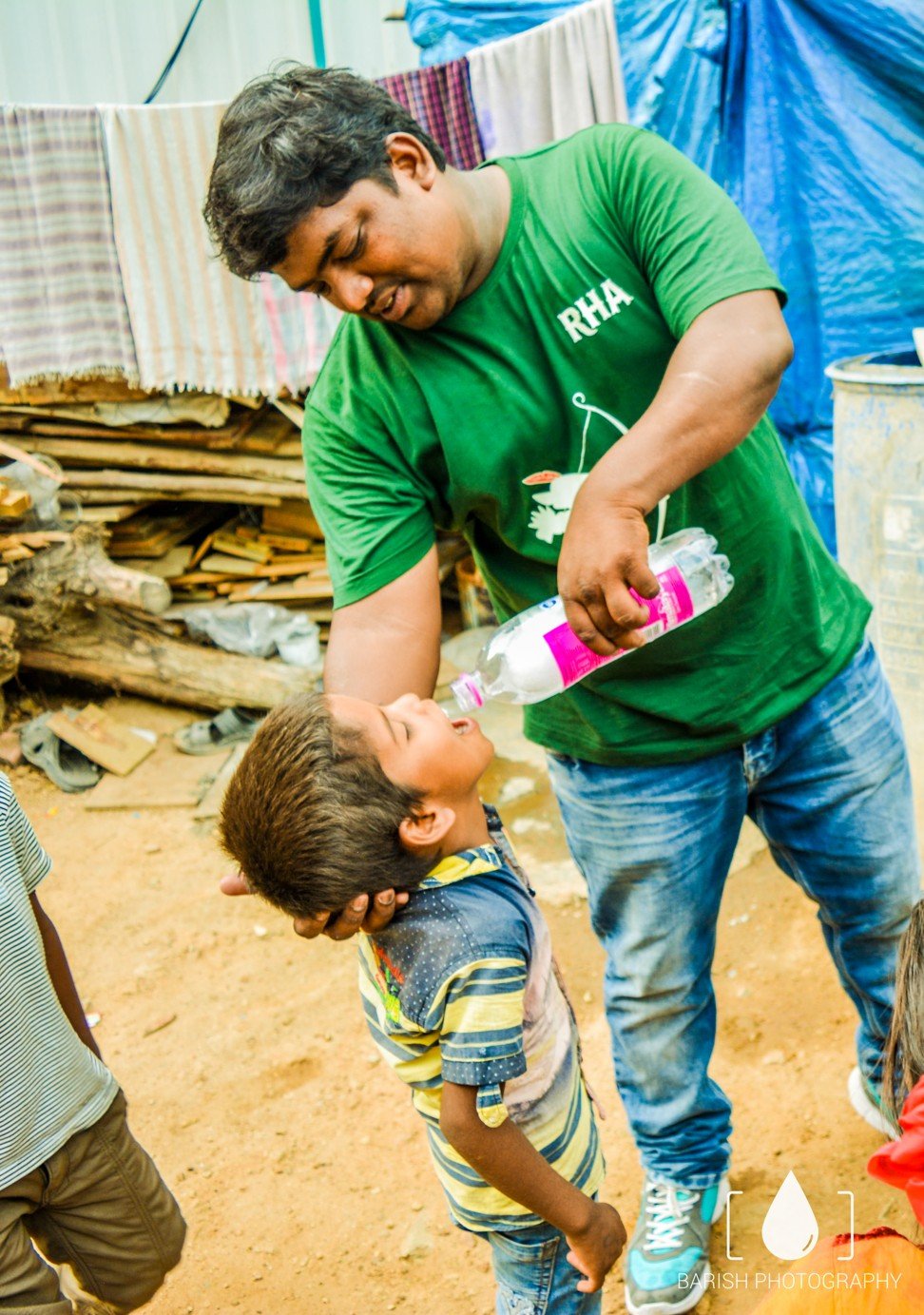
“My restaurant has been a regular food donor for the past five years. I was inspired by [the charity’s] ‘no-money policy’. The team works selflessly and ensures that food that would otherwise go to waste reaches the people who need it,” says Ravikanth Reddy, who owns a restaurant in the Indian city of Hyderabad.
An advantage of the group’s decentralised model is that it has encouraged Robins to innovate. In some cities with large apartment complexes, volunteers have mobilised neighbouring families to make one extra meal a day each for the charity.
“I have been a food banker with the Robin Hood Army for the past three years. There are 10 families in my apartment complex and one of us provides 30 freshly cooked meals every week. The Robins … send us a reminder a day in advance and always pick up the food on time.” says Sapna Malhotra, 50, a Mumbai-based investment manager.
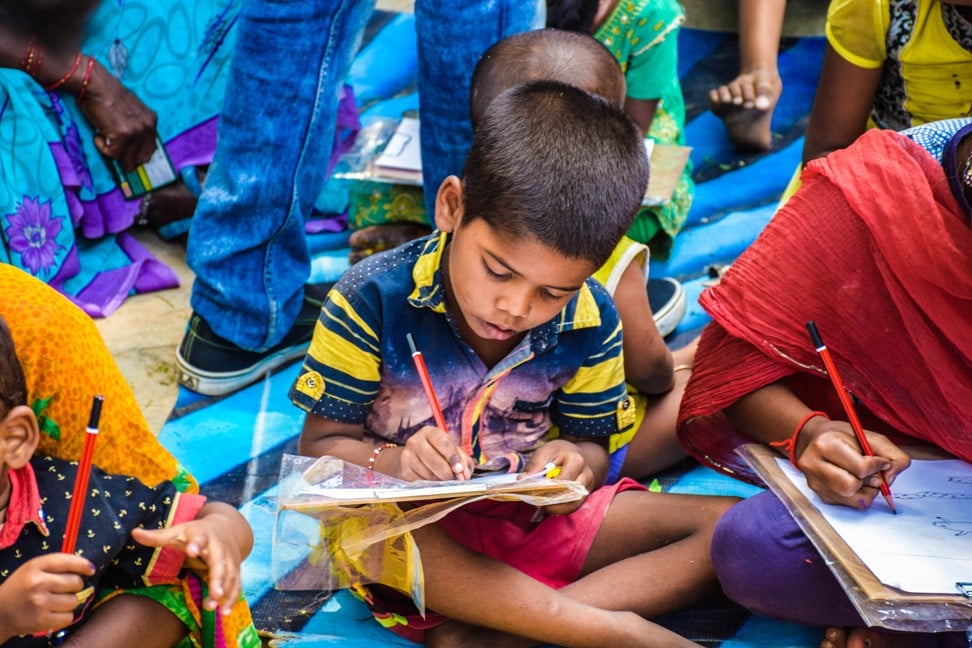
The organisation has also begun collecting excess food from weddings. “We have swat teams which work late night shifts … From the surplus food that we collected at a wedding in Surat [a city in Gujarat state], we were able to feed 6,000 people,” Ghose says.
Some Robins began teaching a few street children in their free time and that led to the inception of the Robin Hood Academy, where Robins teach a standardised curriculum to slum children to enable them to enrol in local government schools. The academy is a bridge between the street and the schools.
“Currently we teach 5,000 children across 57 cities, and 1,175 of them have started going to school,” says 31-year-old Mohit Arora, who manages the academy.
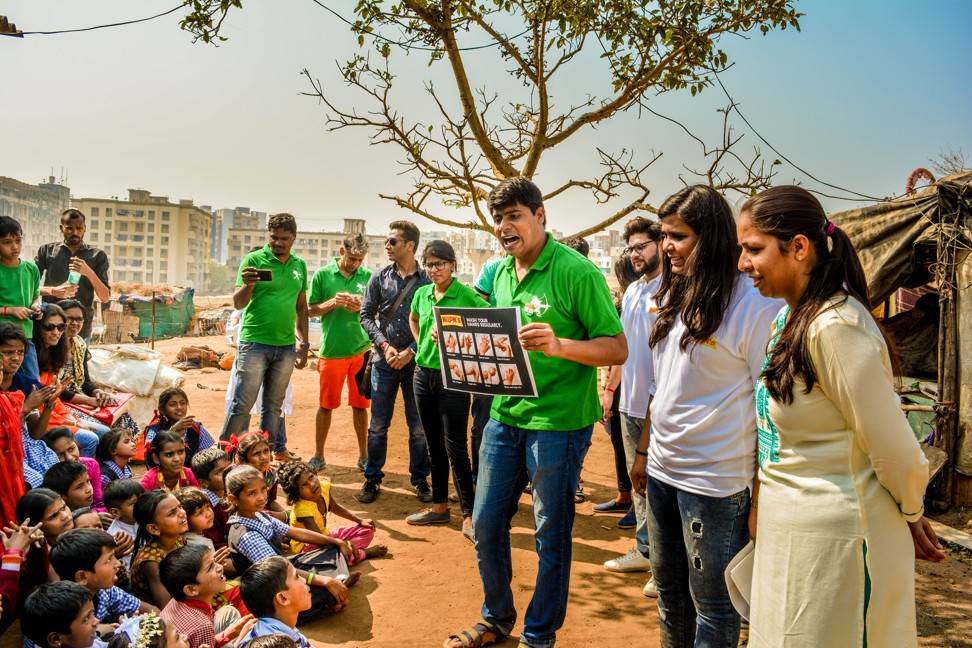
Robin Hood Army Chennai is crowdsourcing schoolbags from the city’s schools to send to a remote village school in Orissa, where a Robin is a teacher. In Surat, Gujarat classrooms are being built for underprivileged children under a bridge, using waste materials and with the help of other organisations. In Hyderabad, Robins are building new toilets and renovating old ones in schools.
“When northern Gujarat was hit by floods, two of our Robins travelled 1,100 kilometres to supply 10,000 kilograms of food grains and 2,000 kilograms of clothes that had been collected, to help 39,000 people,” says Ghose.
In 2017, the Robin Hood Army undertook its largest single battle to date against hunger, Mission1Million, where volunteers from India and Pakistan joined hands to celebrate 70 years of independence and served 1.34 million meals to people across 48 cities in both countries.
“The [Robin Hood Army] is a cause that brings out the best in people. It is turning common people into leaders of a passionate movement to eradicate hunger,” says 30-year-old Suvarna Mandal, a Robin and lawyer.

